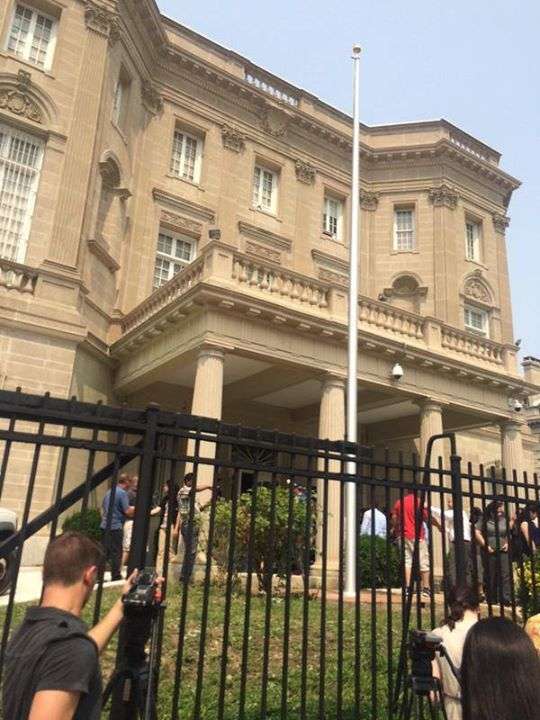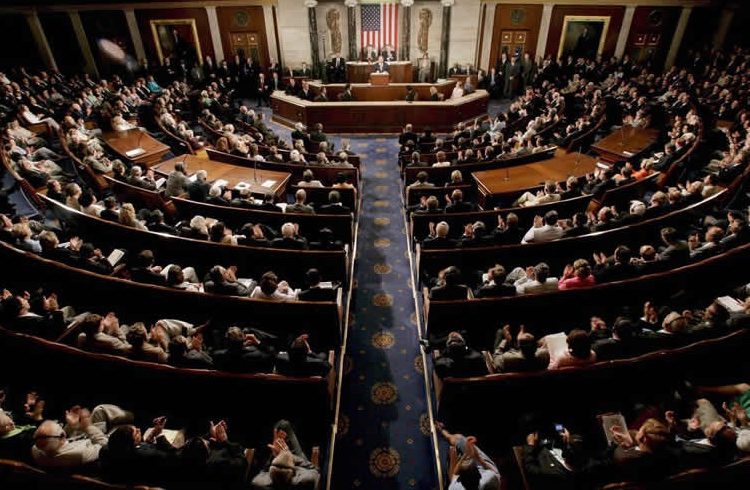The U.S. and Cuba could be announcing the re-establishment of relations in early July, according to “U.S. sources familiar with the matter” quoted by Reuters.
The reopening of embassies has been preceded by a step filled with symbolism: the installation and renovation of flagpoles at the Cuban and U.S. Interests Sections, respectively.
Now the diplomats on both sides of the border await the final decision, that must be notified to Congress by the Department of State fifteen days in advance –right away, that is.
The formal opening of the U.S. Embassy in Havana depends on a trip of Secretary of State John Kerry to the island for the inauguration.
The sources that spoke to Reuters said that the trip will have to wait for now, as Kerry is currently recovering from a broken leg –due to a biking accident in France–, as well as quite busy with the June 30 deadline for a final nuclear deal with Iran.
The normalization process has kept the U.S. House of Representatives busy. Last week, lawmakers focused on blocking the funds that had been requested for the U.S. Embassy to be able to operate in Havana –funds which are not to be provided by the Department of State.
Also, early in June, the House passed a number of spending bills for fiscal year 2016 which include sections aimed at limiting the rapprochement between the two countries.
The acts must be approved by the Senate and the president to come into effect and become an actual threat for the new state of bilateral relations.

An example of these efforts is a provision included in the spending act for the Internal Revenue Service, which seeks to ban travel to Cuba for educational exchange in the case of courses not leading to a degree. If the act came into effect, it would also prohibit the import of products manufactured in facilities that were confiscated by the government of Fidel Castro in 1961.
Another obstacle was introduced in the spending act of the Justice and Commerce departments, which prohibits exports destined to members of the Cuban military and intelligence services and their relatives.
Congressman Sam Farr (Dem-CA) sponsored an amendment of this clause, which, in his opinion, would apply so broadly that it would constrain trade with Cuba.
The request failed by a vote of 273-153. Two Cuban-American congressmen from Florida, Republicans David Curbelo and Mario Díaz-Balart were against the amendment.
“It hurts American businesses, and it hurts Cubans. Let’s stop living in the past,” Farr told The Hill.
These laws seem to be doomed, though. They depend on the approval of the president, and he has clearly stated before that he will use his veto power to stop their coming into effect.
The Obama administration doesn’t have many reasons not to do it. Not only these acts interfere with its plans to normalize relations with Cuba, they oppose most of its political agenda.
The director of the Office of Management and Budget of the White House, Shaun Donovan, sent a three-page letter to the Committee on Appropriations of the House of Representatives explaining how the Department of Defense Appropriation Bill would underfund investments essential to execute the President’s national security and defense strategies in the base budget and “preclude needed reforms.” In this letter, Cuba was only mentioned in connection with the provision linked to the Guantanamo Bay detention center.
The White House also released a six-page statement explaining why it would veto the Transportation, Housing and Urban Development, and Related Agencies Appropriations Act, which includes two sections aimed at banning travel by boat or plane to Cuban destinations within 7 miles of properties that were expropriated in the 1960s.
An attempt at amending those clauses failed with 247 votes against it, including 26 democrats. The Executive Office of the President considered these restrictions to travel to Cuba unnecessary.
The deliberations of the House won’t keep Obama awake. He has over four years of experience in these political battles against the Republican majority, and this wouldn’t be the first time he makes use of the presidential veto.










